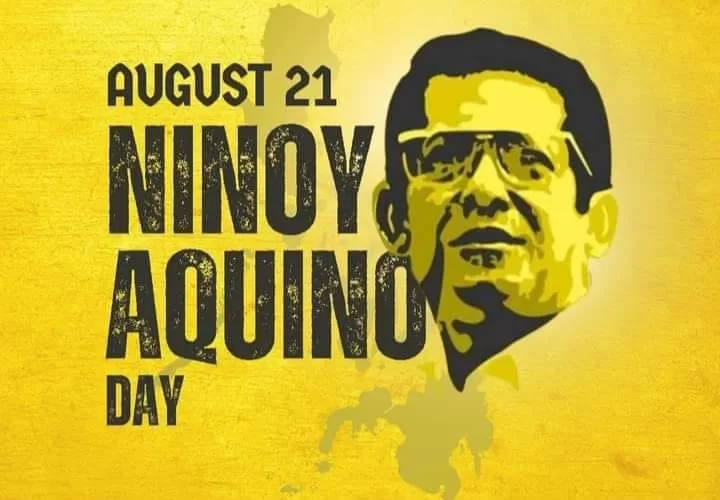The Life of Benigno ‘Ninoy’ Aquino Jr.
Benigno ‘Ninoy’ Aquino Jr. was born on November 27, 1932, in Concepcion, Tarlac, Philippines, into a politically influential family. His early education began at the Ateneo de Manila University, where he showed early signs of leadership and a fervent interest in politics. By the age of 17, he became a newspaper editor and was already involved in his family’s political legacy.Thus, his political aspirations started to take shape during these formative years.
Ninoy Aquino‘s marriage to Corazon ‘Cory’ Aquino in 1954 further cemented his political ambitions. Together, they would become symbols of hope and resistance against oppression. As a political leader, he gained recognition for his strong opposition to the Marcos regime. . He was known for his unwavering stand on issues affecting the Filipino people, displaying tremendous courage even in the face of adversity.
A pivotal moment in Aquino’s life came in 1972 when he was arrested and detained, an act that would solidify his status as a martyr for democracy. His imprisonment and subsequent exile in 1980 did not diminish his influence; rather, it heightened public awareness of the widespread injustices occurring in the Philippines. After several years abroad, he returned in 1983, where he was tragically assassinated at the Manila International Airport, now named in his honor.
The Significance of Ninoy Aquino Day
August 21 is commemorated as Ninoy Aquino Day in the Philippines, marking the anniversary of the assassination of Benigno “Ninoy” Aquino Jr. in 1983.Ninoy Aquino, a prominent opposition leader and staunch advocate for democracy, returned to the Philippines after years of exile, despite knowing that his life would likely be in danger. His assassination immediately sent shockwaves across the nation and catalyzed an unprecedented wave of protests against the Marcos regime.
The significance of Ninoy Aquino Day lies not only in the commemoration of his life and sacrifice but also in recognizing how his tragic death became a rallying cry for the Filipino people. Following his assassination, mass mobilizations erupted, united by a shared desire for democracy and justice. These protests laid the groundwork for the People Power Revolution in 1986, a historic phenomenon that saw millions of Filipinos converge in the streets, calling for democratic reforms and the ousting of Marcos. The revolution ultimately succeeded, leading to the restoration of democratic governance in the Philippines and the establishment of a government that reflected the will of the people.
Ninoy Aquino Day serves as a reminder of the courage demonstrated by those who fought for democracy and human rights, and it emphasizes the enduring importance of civic engagement in preserving these values. It encourages reflection not only on the sacrifices made in the name of freedom but also on the ongoing struggle for democracy in a world often tumultuous with political challenges. Educating the next generation about the events surrounding Ninoy’s life and death is critical; organizations like Onetrugroup play a vital role in preserving and promoting this legacy to ensure that the lessons learned from this chapter in Philippine history continue to inspire future leaders.
Celebrating Ninoy Aquino Day: Traditions and Activities
Ninoy Aquino Day, observed annually on August 21, serves as a significant occasion in the Philippines to honor the legacy of Benigno “Ninoy” Aquino Jr. This day is a poignant reminder of his courage and commitment to the ideals of democracy and justice. Various activities and events take place nationwide, reflecting the importance of his contributions to Filipino society and the enduring relevance of his principles.
Across the Philippines, public events are organized by local governments, civic organizations, and educational institutions to commemorate Ninoy Aquino Day. These events typically include solemn ceremonies where citizens gather to reflect on his life and sacrifices. Many regions hold wreath-laying ceremonies at monuments dedicated to Ninoy, providing a space for individuals to pay their respects. Observances may also feature speeches from local leaders who discuss the impact of Ninoy’s ideals on contemporary societal issues.
In schools, educational programs are designed to engage students in discussions about democracy, justice, and civic responsibility—values that Ninoy embodied. Symposiums, art exhibits, and community service projects foster a sense of unity and encourage young people to emulate his courage. Through these initiatives, the younger generation is educated about their responsibilities as citizens and the importance of standing up against injustices.
Additionally, various civic groups organize community outreach activities, reinforcing the values Ninoy advocated. These may include blood donation drives, free medical clinics, and environmental clean-up projects which encourage collective action toward societal improvement. Such efforts not only honor Ninoy’s memory but also inspire individuals to contribute positively to their communities.
The Legacy of Ninoy Aquino in Contemporary Philippines
Ninoy Aquino’s legacy endures as a guiding light in contemporary Filipino society, embodying the ideals of democracy, freedom, and social justice. The ideals he championed during his lifetime continue to influence current generations, encouraging a robust civic engagement that seeks to address ongoing social issues.
The impact of Aquino’s legacy can be observed in various spheres, including literature, art, and political discourse. Numerous authors and artists draw upon his story to illustrate the virtues of valor and integrity, thus instilling a sense of patriotic duty among Filipinos.
Moreover, the enduring relevance of Aquino’s ideals is evident in the ongoing struggles for democracy and human rights throughout the Philippines. Current political activists frequently invoke his name and legacy as they mobilize support for causes that reflect his fight against oppression. Movements advocating for transparency, accountability, and social equity echo Aquino’s desire for an empowered citizenry.
In conclusion, the legacy of Ninoy Aquino remains a vital force in shaping the contemporary Philippines. His ideals continue to inspire generations, encouraging civic participation and a relentless pursuit of justice in the face of adversity.





